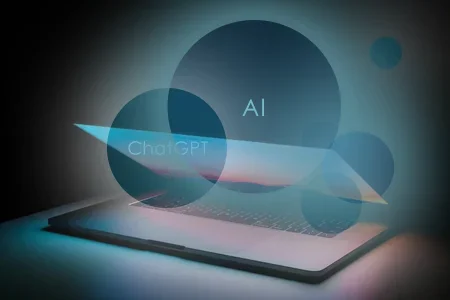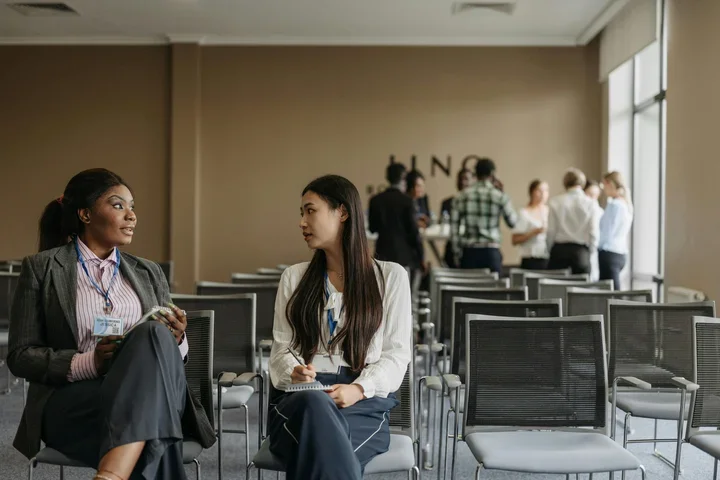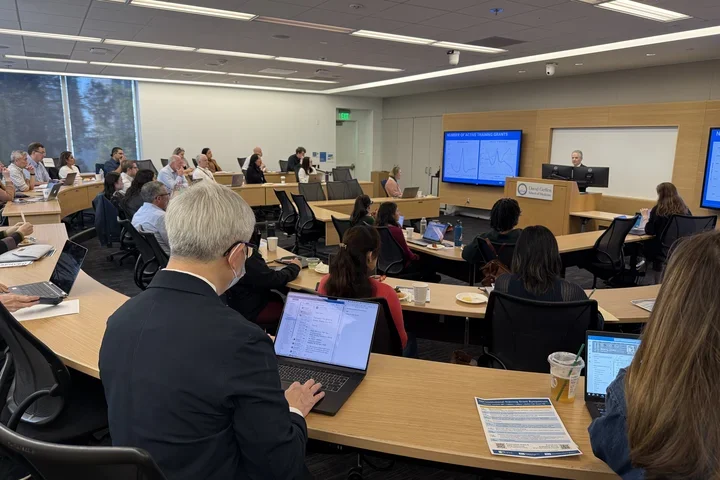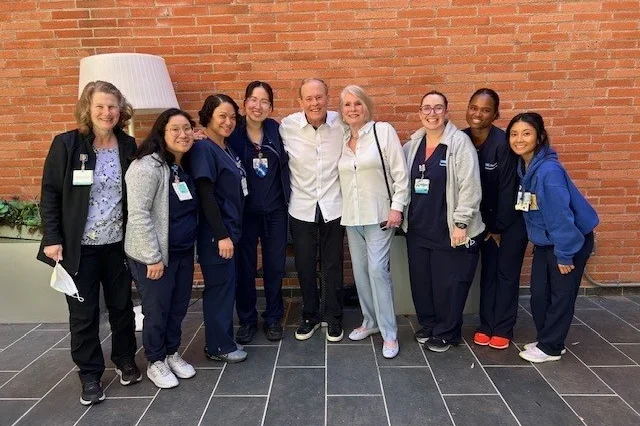CTSI catalyst awardee shares candid insights from a panel of female leaders in translational research
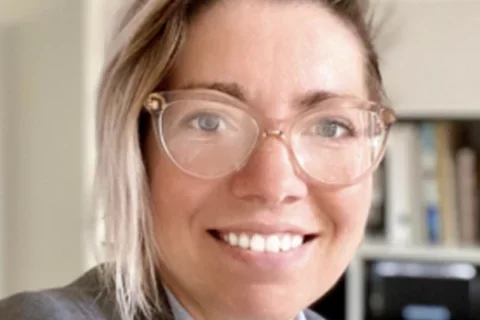
By Dr. Tania Zyrianova, Ph.D. | Assistant Professional Researcher, Department of Pediatrics, UCLA
“When the men are silent, it is our duty to raise our voices in behalf of our ideals.” -- Clara Zetkin
Growing up in a relatively patriarchal country where gender equality is far beyond being a reality, I got used to people celebrating International Women’s Day to thank women for being amazing moms, daughters, wives, and colleagues but not for being outstanding female leaders. I have always known I wanted to be an exception, and I am. Being, as they say, a West Coast “transplant” and international woman-scientist, I feel incredibly fortunate and privileged to have celebrated International Women’s Science Day on March 8th, 2022, with a panel of 11 talented female researchers from across the nation at the inaugural International Women’s Science Day Panel at UCLA.
At present, women make up only 28% of the workforce in science, technology, engineering and math (STEM). Talented female scientists still fight for their rights, climbing up thorny academic stairs. The gender gaps are particularly high in some of the fastest-growing fields of science such as translational research — a process of applying discoveries generated during research in the laboratory and in preclinical studies and the development of trials and studies in humans.
To share how women-scientists are making an impact and facing challenges in their fields today, our virtual Q&A “Café Style” panel discussion brought together 10 successful women from diverse socioeconomic/ethnical backgrounds including those with Asian, Latin, Persian, Arabic, Canadian, Nigerian, British, Russian and American roots. These faculty-rank women with multidisciplinary careers in translational research at various CTSA institutions (and their partners) fight devastating infectious lung/heart/blood diseases. We also had one female, Canadian NIH grants consultant. They shared with us personal and professional mistakes they made throughout their careers. We discussed questions such as: What are the challenges of doing translational research being a woman? How to move on if everybody thinks “your translational research idea is not going to work”? Is academic advancement harder for women in translational research compared to basic/clinical science? What advice would you give to the younger self?
Following the panel discussion, we transitioned to an informal social hour, where the panelists and attendees were able to network and support each other.
Within these two hours of fast-pace intense brain-storming, we touched on a several aspects of a global problem, and I would like to share some personal and professional experiences that the speakers shared with us. I think that many of you who attended the panel would agree how honest, fearful, deep, insightful, and inspiring those thoughts were. Here are some pieces of wisdom from these unstoppable and unbreakable female leaders:
- Sarah Dobson, M.S., NIH Grant writing instructor, shared that it is important to find “a group that can act as a support system as you are moving through your career and share your success and failures.”
- MeiLan Han, M.D., Professor, Chief of Pulmonary and Critical Care, University of Michigan, noted “lots of emotional burdens are put on women, resulting in collective trauma” through our history. Dr. Han advises to “Take a moment to acknowledge what we have been through, think about how women can support each other.”
- Amy L. Ryan, Ph.D., Associate Professor, University of Iowa, shared that one of the main struggles is “To balance work and family time” and that “Many do not feel ready to have children” because of that. Dr. Ryan advises to be confident in asking questions.
- Chidinma Chima-Melton, M.D., Assistant Clinical Professor, UCLA, emphasized logistical difficulties in collecting donor samples when doing a translational research project, especially when “You are a mother and have children and can’t hit a pause.” Dr. Chima-Melton always suggests “To put things into a perspective: to see a forest rather than looking at the trees.”
- Cecilia Marcondes, Ph.D., Associate Professor, San Diego Biomedical Research Institute, suggests “Not to separate basic and translational sciences; they are married together regardless of gender.” Dr. Marcondes would tell the younger herself: “Don’t take more than you can carry and be gentle to yourself.”
- Denise Al Alam, Ph.D., Associate Professor, the Lundquist Institute, Harbor-UCLA, shared that having a lot of family and health struggles, she once decided that if her “R01 wasn’t funded she would quit, but fortunately it was.” Her plan B was to be a chef and open a restaurant. She suggests “Make your own rules” when to work and not to, in order to set boundaries and protect your personal/family time.
- Annabelle de St. Maurice, M.D., Assistant Clinical Professor, UCLA, indicated that “Defining your own success is very important as it is not going to be the same to everyone.” She confesses that “You need to be able to say no.”
- Azadeh R. Fayazi, M.D., Assistant Clinical Professor, Stanford University, mentioned that “Experienced people were having low expectations” on what she was doing, partially because she ran into barriers of resources and networking. She thinks that the key to success is to find the right mentor.
- Michelle Jane Lim, M.D., Assistant Clinical Professor, UC Davis, being a Junior Faculty finds it “Very difficult to find women that achieved work-life balance and don’t feel compromised in any way.” Dr. Lim shared that “Success is relative; success will come with persistence and resilience and with that there will be failures, sometimes with failures there are greatest life lessons and aha moments.”
- Heather Siefkes, M.D., Assistant Professor, UC Davis, admitted that it was very challenging to find good mentorship and wished she had not written grants on vacations or worked on maternity leave.
- Polina Kukhareva, Ph.D., Assistant Professor, University of Utah, said that it was very hard to find "open doors" coming from a poor Russian family. To increase available opportunities she transitioned from a basic scientist to a clinical informaticist. She believes it is important for women to prioritize their interests and learn to say no to projects that do not align with their priorities.
International Women’s Science Day had 171 participants registered and 111 attendees present. This event would not have been possible without the support of my mentor, Dr. Andreas Schwingshackl, his entire lab, the UCLA CTSI Communication team, and the UCLA CTSI Catalyst Award. Post-event evaluations were very positive, and multiple attendees were excited to enroll into our International Women-Scientists Network.
As for my future hopes, I would like to continue “Breaking the Bias” in our community by facilitating the panel discussions and improving listening and understanding of international Women-Scientists doing translational research across the globe. Today, finishing up writing this letter I do feel that I have found my “support group,” and I have a great hope that all 111 attendees feel the same way.
UCLA CTSI is a proud sponsor of the inaugural International Women’s Science Day Panel at UCLA.
image caption: Courtesy of Dr. Tania Zyrianova and organizing team
Image source:
